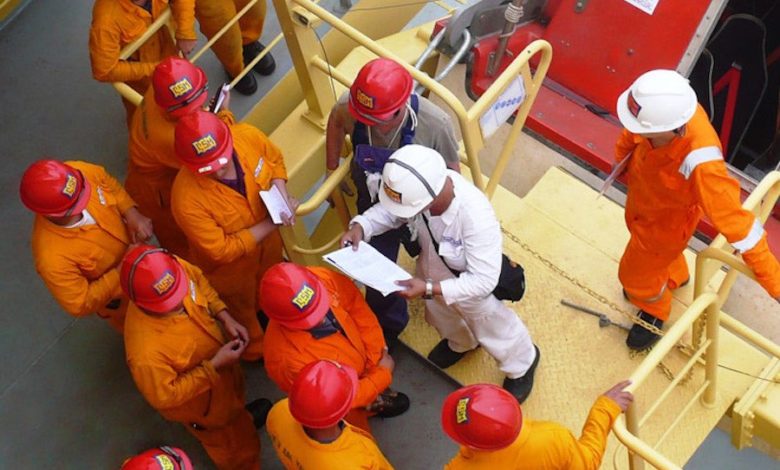Splash Extra: Crew shortages bite

The horrendous disregard shown to the world’s seafarers during the pandemic looks set to see future shortages of crew from traditional seafaring sourcing nations, with manning agents now looking to new pastures to fill potential gaps, according to a survey of leading shipmanagers and shipping associations carried out by sister title Splash Extra today.
Guy Platten, secretary-general of the International Chamber of Shipping (ICS), told Splash Extra that even before the pandemic hit, demand has been outstripping the pace of growth of the workforce.
“We are incredibly close to reaching capacity, where demand outstrips supply,” Platten said.
ICS and BIMCO have also today just launched their latest Seafarer Workforce Report, an important guide to seafarer demographics issued every five years, the findings of which also point to worrying shortages of certain crewing elements.
Latest data from ICS shows the number of seafarers caught up in the ongoing crew change crisis has risen by 50,000 in recent weeks with a quarter of a million workers now caught in limbo as governments clamp down on travel, concerned about rising cases of Covid variants.
Rajesh Unni, CEO of Singapore shipmanager Synergy Marine Group, said that people walking away from a life at sea now was inevitable given what so many have had to endure over the past 18 months.
“If you treat people poorly in any walk of life then recruitment and retention becomes more difficult,” commented Rajesh Unni, CEO of Singapore shipmanager Synergy Marine Group.
Many managers surveyed are spreading their recruitment footprint to address any potential shortages with traditional manning powerhouses India and the Philippines having endured a very tough pandemic. One area many are looking to fill the gap is among the coastal African states.
Top executives from Anglo-Eastern, Columbia Shipmanagement, Fleet Management, InterManager, V. Ships and Wilhelmsen Ship Management are also interviewed among a host of other crewing specialists for the July lead story in Splash Extra.
Elsewhere in the subscription title there is regular markets commentary, a look at what’s driving the S&P markets this month while this month’s in-depth feature looks at the disconnect between container port development and newbuild planning.
Published on the last Wednesday of every month and priced for as little as $200 a year, Splash Extra serves as a concise monthly snapshot, ensuring readers are on top of where the shipping markets are headed.
For more details on Splash Extra subscriptions, click here.

From the department of few surprises. Was all the foot-dragging and delaying tactics really worth it? Crew from the developed-world will say “Stuff this! I can get as good a job ashore and be with my family. Why should l put up with this crap?” Those from developing nations will think the same, albeit facing a somewhat tougher decision, with fewer good paying jobs ashore. Seafaring as a profession went out when containers replaced break-bulk, crews were shorn to a minimum while ships got bigger, and port calls were a matter of hours at remote terminals. Nowadays l see no adventure in going to sea. So the attraction can only be money, to compensate for time away from families, from human society. 18 people cooped up in a 1300 foot box-boat is no place for human beings to spend more than a month or two. I’m not surprised morale goes into the toilet when contracts are deliberately lengthened to a year or more.(in 1969 l signed on as 3rd Mate for 2 years on a Hong-Kong flagged break-bulk cargo ship operating Japan-Singapore-Calcutta and all ports in between. Crew of 60+. But we spent 75% of our time in port, staying alongside for a week, downtown, ashore, working cargo only during the day- that’s what l call seafaring as an adventure).
Without the adventure, there must be the money. And regular leave strictly adhered to. The reason for being at sea lies outside the ship, at home, with wife and children, building savings to acquire a toe-hold in a business ashore. The shipowners in their greed lost out. Tough!
There are still lot of seafarers available and looking for suitable job. The rules of matrux, various demands, unfair treatment from crewmanning, looking for people which can accept lowest wage despite they can leave ashore more decent, lot of trainings some useless, just to overload with certificates instead of skills, playing with disposable seafarers by comopanies which like to sacrifice peoples instead invest in peoples, weakness of international bodies to implement properly the rules….shipping is just a bad choice where proffesionals rarely get the reward.
Could not have said it better myself, John. It only seems to have got worse. Hope you’re not caught up in it. Crewing agencies in SE Asia especially abusive. I wish them luck with Africa. In most regions there is almost no tradition or history of seafaring. I believe the Dutch auction in crewing is about to bottom out. When they have abused the last African and he leaves, where will they turn to next?